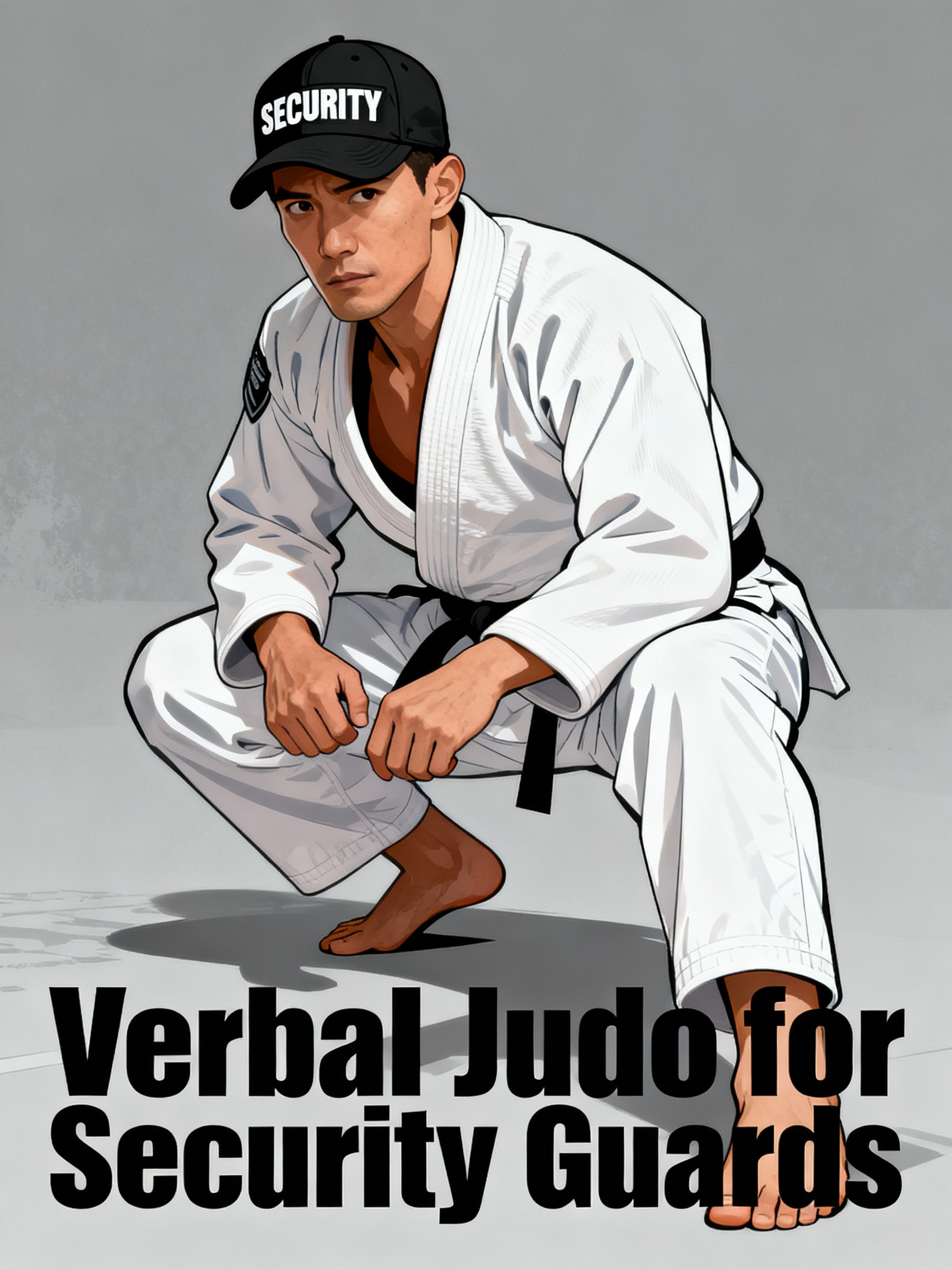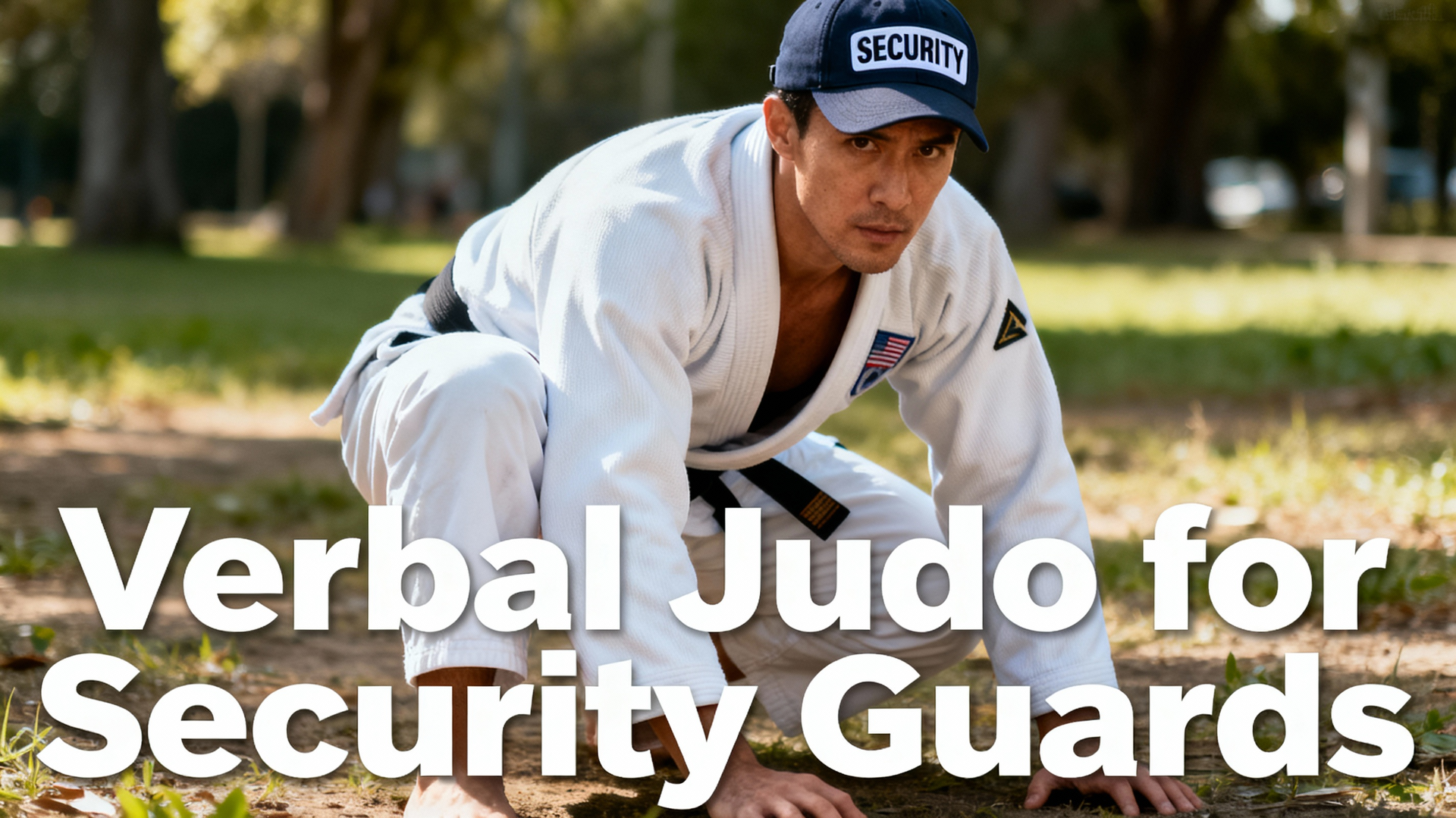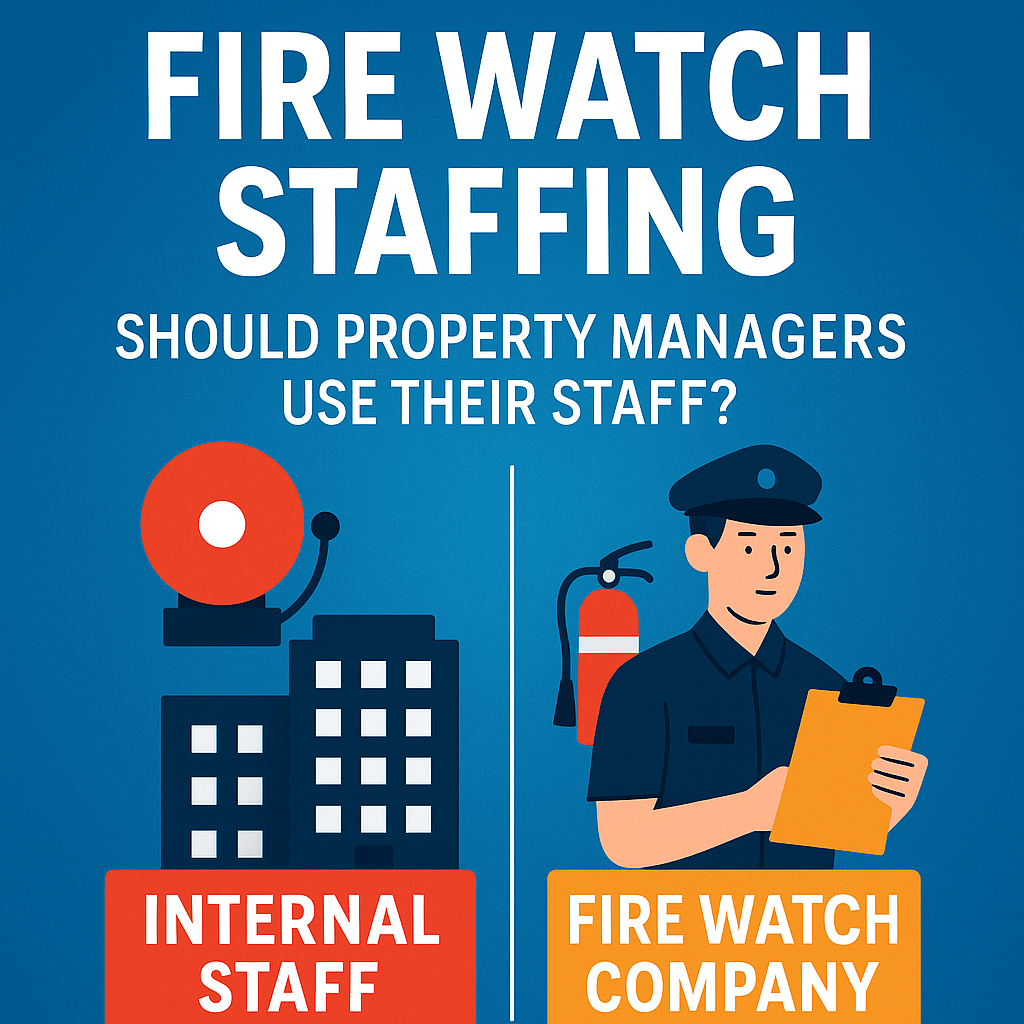How security guards use verbal judo


When people think of the skills a security officer has and the training they might receive, they usually have images of firing ranges and judo throws, but in truth, the most essential training they receive is not physical. As a professional security company in Washington DC , we teach our officers to use their words to prevent verbal conversations with suspects do not become physical conflicts. Physical conflict for a security officer often leads to complications, legal action, and potential harm. Learning conflict resolution skills and, more importantly, the skills to avoid a conflict altogether, will lead an officer to greater success than any combat training ever will. According to a recent Rutgers University Study, only 3 percent of interaction in law enforcement is physical, with the other 97 percent being verbal. This makes Verbal Judo a valuable tool for both security and law enforcement. Frequent non-physical encounters with suspects explain why the verbal judo training program is now mandatory in many police departments and academy curriculums across the United States. We encourage our security officers to use verbal judo.
Verbal Judo, put simply, is the practice of using words to prevent or end acts of physical violence and avoid letting a situation escalate. The way it works is by redirecting an aggressor’s hostile energy back at them and getting them to think in your terms. Through a combination of compassion and self-confidence, it is possible to get people to use a different part of their brain and overcome the natural “Fight or flight” response.
About Verbal Judo
Verbal Judo , designed by former English professor and police officer Dr. George Thompson, is a system of verbalization tactics. The theme of Verbal Judo is generating voluntary compliance, through verbal persuasion while maintaining professionalism. Verbal Judo teaches you to redirect the energy of an uncooperative person rather than resisting them. Keep things professional, not personal. Respond to a situation and control it rather than react to a situation and let it control you.
The three goals of Verbal Judo are:
- Officer safety—Preventing violent confrontations by using words
- Enhanced Professionalism–Recognizing the impact of words and using language appropriate to each encounter
- Reduced vicarious liability– Fewer complaints and lawsuits
There are Five Universal Truths of Verbal Judo, according to verbaljudo.com :
- ALL cultures want to be treated with Dignity and Respect
- ALL people would rather be asked than told what to do
- ALL people want to know why they are asked or told to do something
- ALL people would rather have options than threats
- ALL people want a second chance to make matters right
A Sample of Verbal Judo Techniques
Verbal Judo provides alternatives to communication that could escalate situations. Questions often replace commands, using a phrase like “What’s the trouble?” to replace “Calm down!” or “Can we talk for a second?” instead of “Come here!”
Verbal attacks are mostly disregarded, taking power away from the aggressor. It is often beneficial to let someone blow off steam in this way, as long as they are physically compliant.
Questions are never ignored or dismissed. When people have more information, they are more likely to understand our purpose and reasoning and cooperate.
There are several types of appeals for compliance that can be made in Verbal Judo, and they should be made in the following order:
- Ethical appeal — People comply if they believe in what we stand for.
2. Reasonable appeal — After calming the person down, appeal to their need to follow policy and procedures.
3. Personal appeal – State clearly what the person has to gain or lose by complying or not complying.
4. Practical appeal – This appeal incorporates indirect tactics like humor and re-direction.
5. Final appeal – Make the final request of “Is there anything I can do to get you to get you to obey this rule or follow my lawful order?”
Paraphrasing a subject’s statement can create a connection with them, making them more likely to listen to you and understand you.
Politely interrupt momentum with a “sword of insertion” such as “listen,” “let me make sure I understand this” or “wait a minute.” This tactic, combined with paraphrasing, can have an enormous, calming effect and facilitate listening.
Security Assignments for Verbal Judo
Security officers will find opportunities to use Verbal Judo in a variety of situations. For example:
- Retail security – A Security officer may need to use Verbal Judo to deal with angry shoppers who are upset with store policies, staff or other shoppers. The techniques can also help to apprehend shoplifters without as much risk of physical violence safely.
- Event security – Whenever large amounts of people are gathered together for an event, there is a greater chance of an altercation between attendees or with staff. Verbal Judo can be used to assist with crowd control and handle tricky interactions with attendees who have had too much to drink.
- Residential security – It is easy for a person to feel disrespected when dealing with security in their apartment building or condo, which makes Verbal Judo techniques very valuable for this application.
- Office Building Security – In a busy office, passing a security checkpoint or answering security questions can be considered a nuisance and might even make someone late for an important meeting. Verbal Judo helps to keep these interactions from escalating and can be used to help people to understand the need for security in these situations.
In Conclusion
Security officers are at their best when they are preventing physical altercations—this is the safest and most cost-effective solution for themselves and the institutions and people they protect. Verbal Judo is an essential tool to help security officers prevent situations from escalating to violence.
Expert Security Services You Can Trust
You may also like
Need short term fire watch or security services?
We provide expert fire watch and security guard services for both last-minute needs and planned situatiopns. Whatever the circumstances, we are ready to help.




